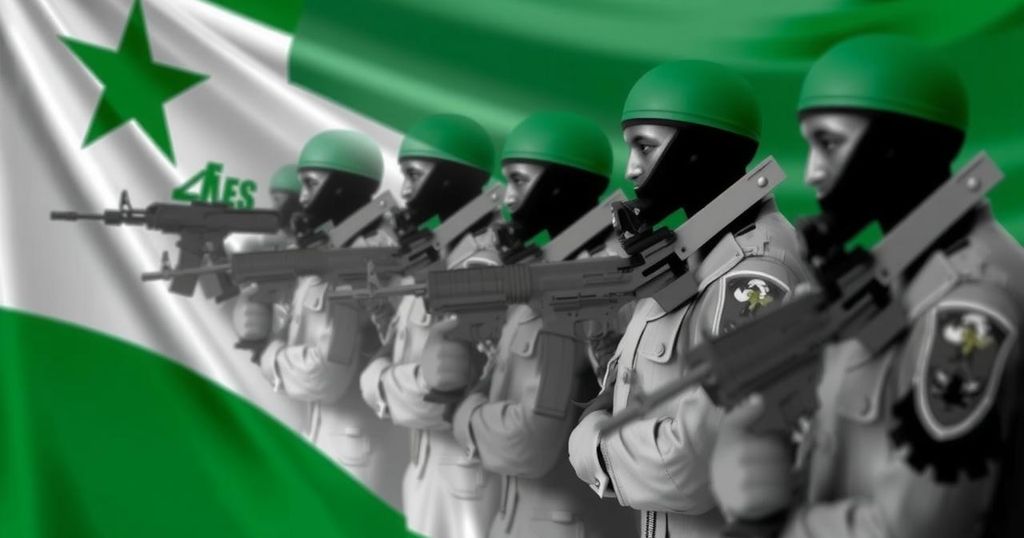The United Arab Emirates has assured the United States that it will not supply arms to Sudan’s Rapid Support Forces amid the ongoing civil war, which has resulted in a severe humanitarian crisis. In response, the United States has announced an additional $200 million in aid. Lawmakers stress the importance of holding the UAE accountable to ensure compliance with their commitment, as the situation in Sudan worsens.
The United Arab Emirates (UAE) has assured the United States that it will not supply arms to Sudan’s paramilitary Rapid Support Forces (RSF), amid growing concerns regarding the humanitarian crisis stemming from Sudan’s ongoing civil war. This commitment was communicated to U.S. lawmakers during a period when the United Nations has labeled the situation in Sudan as one of the most severe humanitarian disasters worldwide, with millions facing the threat of famine and significant casualties since the outbreak of fighting in April 2023.
The assurance from the UAE followed a request from U.S. lawmakers aimed at blocking $1.2 billion in arms sales to the Gulf nation. Senator Chris Van Hollen confirmed that the UAE had informed the Biden administration that it is currently not transferring any weapons to the RSF and does not intend to do so in the future. This statement, relayed through White House coordinator Brett McGurk, comes after ongoing scrutiny over reports suggesting the UAE had been supplying arms to the RSF via Chad.
In a response to the humanitarian crisis, the U.S. has pledged an additional $200 million in aid to Sudan, highlighting the severity of conditions where over 1.7 million individuals are at risk of famine. Secretary of State Antony Blinken emphasized the necessity for the international community to acknowledge and address the humanitarian catastrophe unfolding in Sudan, noting that some people are resorting to eating grass and peanut shells for survival. The UN has indicated that up to $4.2 billion will be needed to support Sudan in the coming year, underscoring the insufficient aid currently being delivered to those in need.
The ongoing conflict has led to a situation where the RSF controls significant regions within Sudan, further complicating peace and stability efforts. Lawmakers are now committed to monitoring the UAE’s compliance with its pledge, recognizing that any support for the RSF could jeopardize efforts to bring an end to the violence and establish a ceasefire.
The UAE’s commitment not to arm the RSF comes against a backdrop of significant international concern regarding the escalating conflict in Sudan. The RSF is involved in violent clashes with Sudan’s regular army, which have resulted in tens of thousands of fatalities since the onset of renewed fighting in April 2023. The humanitarian situation has reached desperate levels, with millions facing starvation. The U.S. has felt compelled to respond through financial aid and diplomatic pressure, particularly regarding arms sales to the UAE that may enhance the RSF’s military capabilities. Furthermore, the UAE’s historical relationship with the RSF, established during its engagement in Yemen, complicates the narrative surrounding their military support and international obligations.
In summary, the UAE’s promise to refrain from supplying arms to Sudan’s RSF represents a significant diplomatic move amid a devastating humanitarian crisis. The U.S. is poised to enhance monitoring efforts to ensure compliance, as lawmakers acknowledge the UAE’s pivotal role in moderating the RSF’s capabilities. The ongoing commitment from the U.S. to provide humanitarian aid highlights the urgent need to address the deteriorating conditions faced by millions in Sudan, and underscores the importance of international cooperation in restoring peace.
Original Source: www.france24.com







